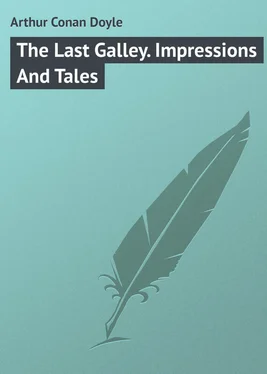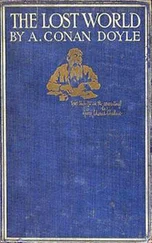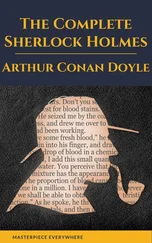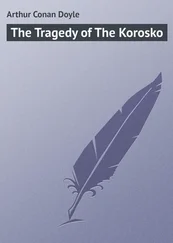Arthur Conan Doyle - The Last Galley. Impressions And Tales
Здесь есть возможность читать онлайн «Arthur Conan Doyle - The Last Galley. Impressions And Tales» — ознакомительный отрывок электронной книги совершенно бесплатно, а после прочтения отрывка купить полную версию. В некоторых случаях можно слушать аудио, скачать через торрент в формате fb2 и присутствует краткое содержание. Жанр: foreign_prose, на английском языке. Описание произведения, (предисловие) а так же отзывы посетителей доступны на портале библиотеки ЛибКат.
- Название:The Last Galley. Impressions And Tales
- Автор:
- Жанр:
- Год:неизвестен
- ISBN:нет данных
- Рейтинг книги:3 / 5. Голосов: 1
-
Избранное:Добавить в избранное
- Отзывы:
-
Ваша оценка:
- 60
- 1
- 2
- 3
- 4
- 5
The Last Galley. Impressions And Tales: краткое содержание, описание и аннотация
Предлагаем к чтению аннотацию, описание, краткое содержание или предисловие (зависит от того, что написал сам автор книги «The Last Galley. Impressions And Tales»). Если вы не нашли необходимую информацию о книге — напишите в комментариях, мы постараемся отыскать её.
The Last Galley. Impressions And Tales — читать онлайн ознакомительный отрывок
Ниже представлен текст книги, разбитый по страницам. Система сохранения места последней прочитанной страницы, позволяет с удобством читать онлайн бесплатно книгу «The Last Galley. Impressions And Tales», без необходимости каждый раз заново искать на чём Вы остановились. Поставьте закладку, и сможете в любой момент перейти на страницу, на которой закончили чтение.
Интервал:
Закладка:
"Hail, Caesar, hail!" he cried, as he bowed his head before the giant. "I come from Alexander. He will trouble you no more."
For three years the soldier Emperor had been upon the throne. His palace had been his tent, and his people had been the legionaries. With them he was supreme; away from them he was nothing. He had gone with them from one frontier to the other. He had fought against Dacians, Sarmatians, and once again against the Germans. But Rome knew nothing of him, and all her turbulence rose against a master who cared so little for her or her opinion that he never deigned to set foot within her walls. There were cabals and conspiracies against the absent Caesar. Then his heavy hand fell upon them, and they were cuffed, even as the young soldiers had been who passed under his discipline. He knew nothing, and cared as much for consuls, senates, and civil laws. His own will and the power of the sword were the only forces which he could understand. Of commerce and the arts he was as ignorant as when he left his Thracian home. The whole vast Empire was to him a huge machine for producing the money by which the legions were to be rewarded. Should he fail to get that money, his fellow soldiers would bear him a grudge. To watch their interests they had raised him upon their shields that night. If city funds had to be plundered or temples desecrated, still the money must be got. Such was the point of view of Giant Maximin.
But there came resistance, and all the fierce energy of the man, all the hardness which had given him the leadership of hard men, sprang forth to quell it. From his youth he had lived amidst slaughter. Life and death were cheap things to him. He struck savagely at all who stood up to him, and when they hit back, he struck more savagely still. His giant shadow lay black across the Empire from Britain to Syria. A strange subtle vindictiveness became also apparent in him. Omnipotence ripened every fault and swelled it into crime. In the old days he had been rebuked for his roughness. Now a sullen dangerous anger arose against those who had rebuked him. He sat by the hour with his craggy chin between his hands, and his elbows resting on his knees, while he recalled all the misadventures, all the vexations of his early youth, when Roman wits had shot their little satires upon his bulk and his ignorance. He could not write, but his son Verus placed the names upon his tablets, and they were sent to the Governor of Rome. Men who had long forgotten their offence were called suddenly to make most bloody reparation.
A rebellion broke out in Africa, but was quelled by his lieutenant. But the mere rumour of it set Rome in a turmoil. The Senate found something of its ancient spirit. So did the Italian people. They would not be for ever bullied by the legions. As Maximin approached from the frontier, with the sack of rebellious Rome in his mind, he was faced with every sign of a national resistance. The countryside was deserted, the farms abandoned, the fields cleared of crops and cattle. Before him lay the walled town of Aquileia. He flung himself fiercely upon it, but was met by as fierce a resistance. The walls could not be forced, and yet there was no food in the country round for his legions. The men were starving and dissatisfied. What did it matter to them who was Emperor? Maximin was no better than themselves. Why should they call down the curse of the whole Empire upon their heads by upholding him? He saw their sullen faces and their averted eyes, and he knew that the end had come.
That night he sat with his son Verus in his tent, and he spoke softly and gently as the youth had never heard him speak before. He had spoken thus in old days with Paullina, the boy's mother; but she had been dead these many years, and all that was soft and gentle in the big man had passed away with her. Now her spirit seemed very near him, and his own was tempered by its presence.
"I would have you go back to the Thracian mountains," he said. "I have tried both, boy, and I can tell you that there is no pleasure which power can bring which can equal the breath of the wind and the smell of the kine upon a summer morning. Against you they have no quarrel. Why should they mishandle you? Keep far from Rome and the Romans. Old Eudoxus has money, and to spare. He awaits you with two horses outside the camp. Make for the valley of the Harpessus, lad. It was thence that your father came, and there you will find his kin. Buy and stock a homestead, and keep yourself far from the paths of greatness and of danger. God keep you, Verus, and send you safe to Thrace."
When his son had kissed his hand and had left him, the Emperor drew his robe around him and sat long in thought. In his slow brain he revolved the past – his early peaceful days, his years with Severus, his memories of Britain, his long campaigns, his strivings and battlings, all leading to that mad night by the Rhine. His fellow soldiers had loved him then. And now he had read death in their eyes. How had he failed them? Others he might have wronged, but they at least had no complaint against him. If he had his time again, he would think less of them and more of his people, he would try to win love instead of fear, he would live for peace and not for war. If he had his time again! But there were shuffling Steps, furtive whispers, and the low rattle of arms outside his tent. A bearded face looked in at him, a swarthy African face that he knew well. He laughed, and, bearing his arm, he took his sword from the table beside him.
"It is you, Sulpicius," said he. "You have not come to cry 'Ave Imperator Maximin!' as once by the camp fire. You are tired of me, and by the gods I am tired of you, and glad to be at the end of it. Come and have done with it, for I am minded to see how many of you I can take with me when I go."
They clustered at the door of the tent, peeping over each other's shoulders, and none wishing to be the first to close with that laughing, mocking giant. But something was pushed forward upon a spear point, and as he saw it, Maximin groaned and his sword sank to the earth.
"You might have spared the boy," he sobbed. "He would not have hurt you. Have done with it then, for I will gladly follow him."
So they closed upon him and cut and stabbed and thrust, until his knees gave way beneath him and he dropped upon the floor.
"The tyrant is dead!" they cried. "The tyrant is dead," and from all the camp beneath them and from the walls of the beleaguered city the joyous cry came echoing back, "He is dead, Maximin is dead!"
I sit in my study, and upon the table before me lies a denarius of Maximin, as fresh as when the triumvir of the Temple of Juno Moneta sent it from the mint. Around it are recorded his resounding titles – Imperator Maximinus, Pontifex Maximus, Tribunitia potestate, and the rest. In the centre is the impress of a great craggy head, a massive jaw, a rude fighting face, a contracted forehead. For all the pompous roll of titles it is a peasant's face, and I see him not as the Emperor of Rome, but as the great Thracian boor who strode down the hillside on that far-distant summer day when first the eagles beckoned him to Rome.
The coming of the Huns
In the middle of the fourth century the state of the Christian religion was a scandal and a disgrace. Patient, humble, and long-suffering in adversity, it had become positive, aggressive, and unreasonable with success. Paganism was not yet dead, but it was rapidly sinking, finding its most faithful supporters among the conservative aristocrats of the best families on the one hand, and among those benighted villagers on the other who gave their name to the expiring creed. Between these two extremes the great majority of reasonable men had turned from the conception of many gods to that of one, and had rejected for ever the beliefs of their forefathers. But with the vices of polytheism they had also abandoned its virtues, among which toleration and religious good humour had been conspicuous. The strenuous earnestness of the Christians had compelled them to examine and define every point of their own theology; but as they had no central authority by which such definitions could be checked, it was not long before a hundred heresies had put forward their rival views, while the same earnestness of conviction led the stronger bands of schismatics to endeavour, for conscience sake, to force their views upon the weaker, and thus to cover the Eastern world with confusion and strife.
Читать дальшеИнтервал:
Закладка:
Похожие книги на «The Last Galley. Impressions And Tales»
Представляем Вашему вниманию похожие книги на «The Last Galley. Impressions And Tales» списком для выбора. Мы отобрали схожую по названию и смыслу литературу в надежде предоставить читателям больше вариантов отыскать новые, интересные, ещё непрочитанные произведения.
Обсуждение, отзывы о книге «The Last Galley. Impressions And Tales» и просто собственные мнения читателей. Оставьте ваши комментарии, напишите, что Вы думаете о произведении, его смысле или главных героях. Укажите что конкретно понравилось, а что нет, и почему Вы так считаете.












